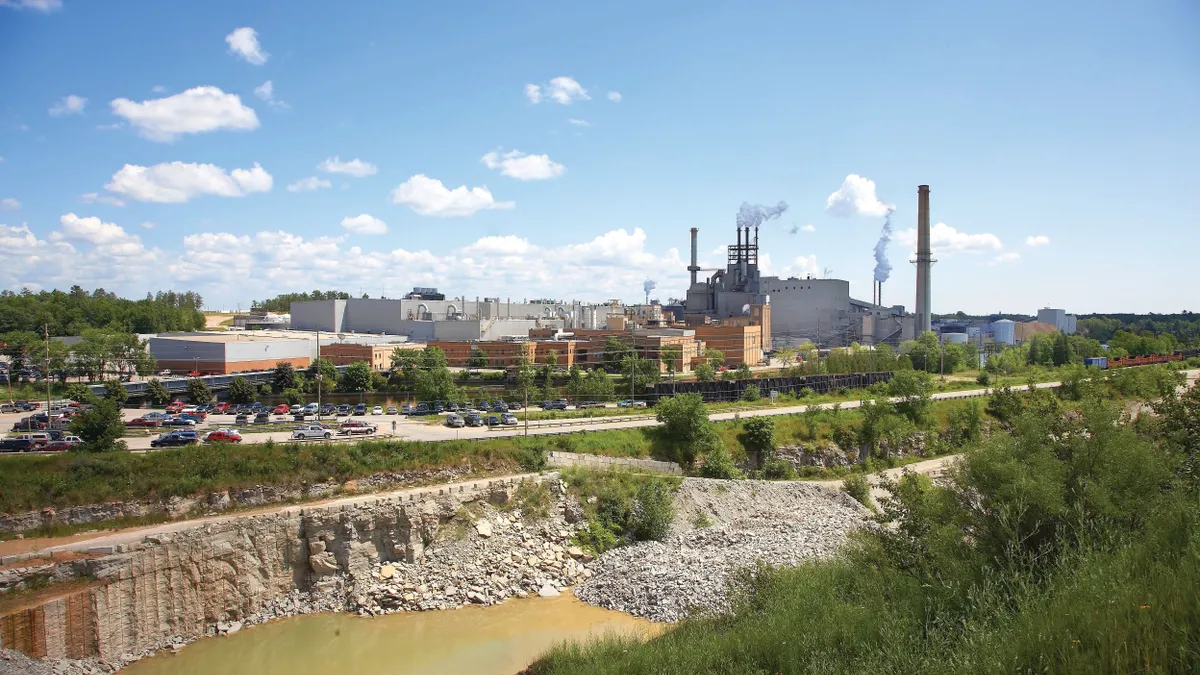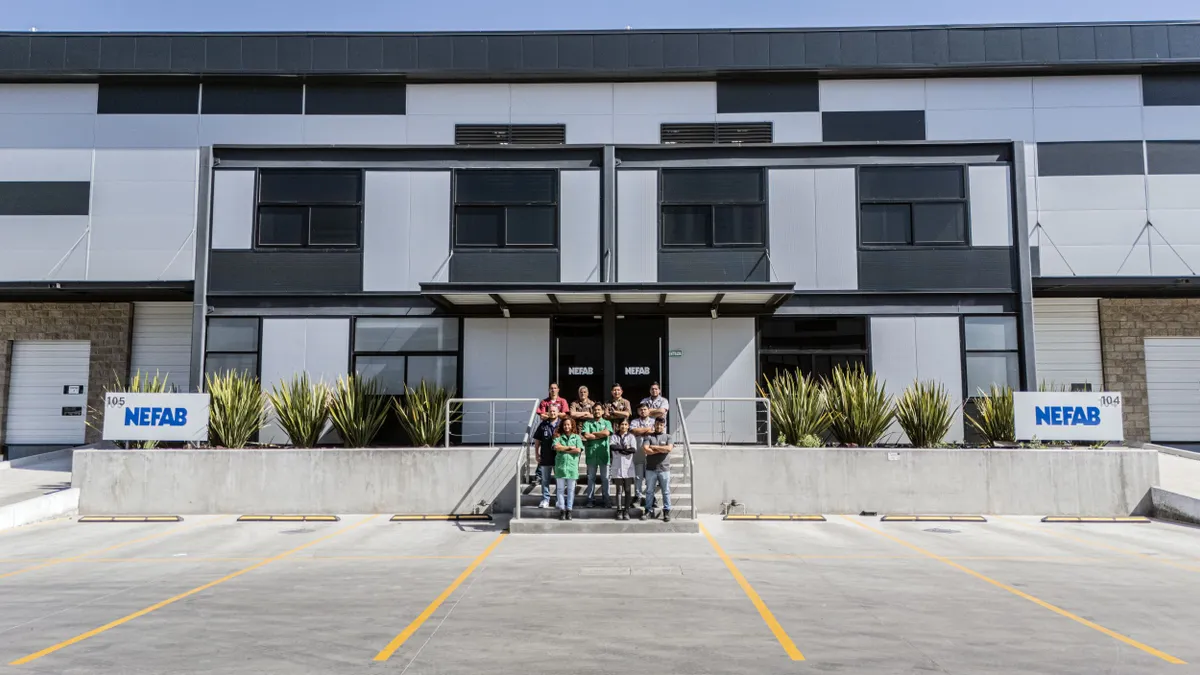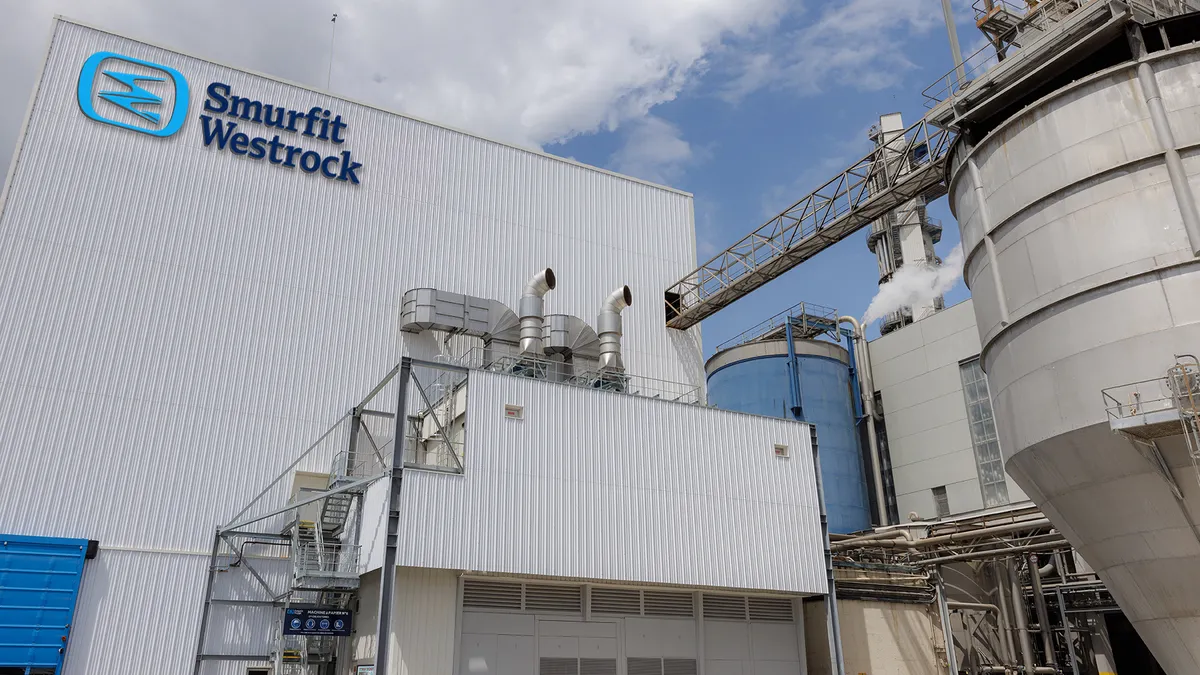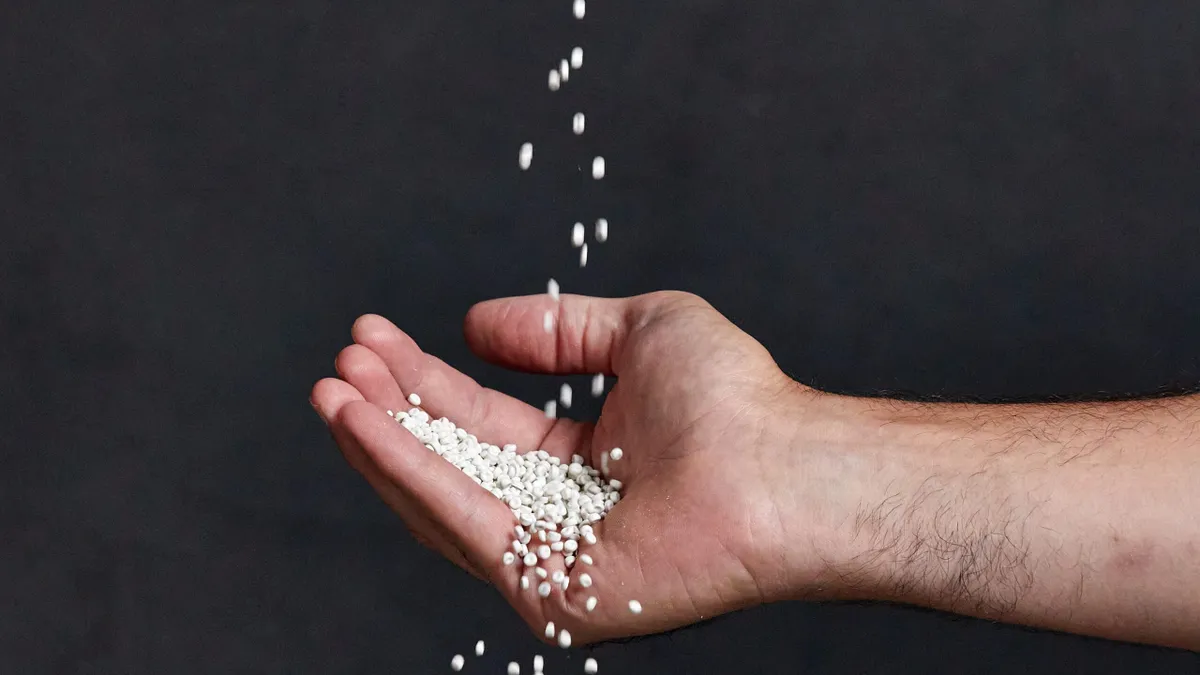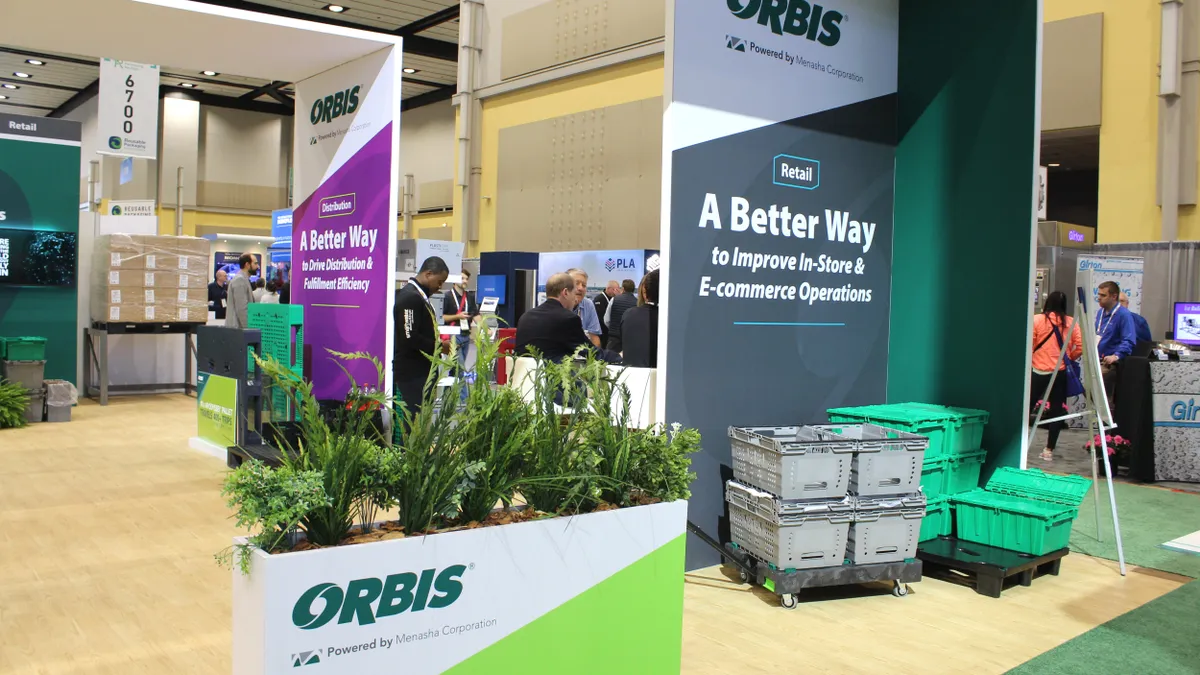Billerud no longer plans to convert its Escanaba, Michigan, plant into a cartonboard production facility, and it might not be the only one with capacity changes afoot. Delays or cancelations to other fiber packaging companies’ capacity expansion projects could be coming down the pike, largely due to soft boxboard markets, industry analysts say.
On May 21, Billerud announced the change to what would have been the first U.S. packaging site for the Swedish pulp and paper manufacturer. The company reported it was going in a “new direction” following “in-depth feasibility studies, evaluations, and supplier discussions” showing that economic conditions and return-on-investment projections had changed since the more than $1 billion commitment was announced in December 2021.
The cost of equipment and services needed to transform the facility, which it acquired in 2022 through the purchase of Verso, made the project “not sufficiently attractive,” according to executives during a conference call following the cancelation announcement. CEO Ivar Vatne said the company “worked long and hard” to identify a solution, but “now the conclusion is pretty clear that the investment level remains a massive challenge.”
Economic conditions change “and we all adjust accordingly,” Vatne added. He reiterated Billerud’s commitment to the North American market and stressed that the Verso acquisition has proven to be a good economic and cultural fit.
Reworking the portfolio
Billerud has not grown its U.S. presence since entering the market in 2022.
In addition to Escanaba, its other North American facilities are a pulp and paper mill in Quinnesec, Michigan, and a paper converting facility in Wisconsin Rapids, Wisconsin. The Escanaba boxboard plant was set to be its first stateside foray into packaging. Last year, Billerud North America named Kevin Kuznicki its new president, replacing Robert Kreizenbeck, and Vatne became CEO following Christoph Michalski’s departure.
In 2022, the Michigan Economic Development Corp. lauded Billerud’s exploration of the Escanaba mill investment as a positive job retention move for 1,240 positions in the state and named the site a Renaissance Zone — a designation that comes with significant tax breaks. Gov. Gretchen Whitmer signed legislation in January 2023 granting Billerud $200 million for the plant conversion, assuming Billerud made investments of approximately $1 billion.
The project cancelation isn’t a complete surprise to those who watched trouble bubble up last year. Billerud first idled the mill in April 2023 for unscheduled maintenance due to a deadly fungal infection outbreak. News trickled through Escanaba in September of upcoming temporary layoffs in October. Leadership for United Steelworkers Local 21, the union representing the Escanaba workers, reported in September that they weren’t worried about the two-week layoffs because of the “generational investment” coming soon to turn around the mill, according to local news outlet MLive.
But then Billerud put the project on pause later in October, citing inflation and other unfavorable conditions. Days later it announced it would reduce up to 350 positions globally “to drive efficiency and long-term competitiveness.” Following the Escanaba project cancelation last month, the union president called the turn of events “devastating news,” MLive reported.
Despite abandoning the Escanaba upgrade, broadly speaking “we are moving our product portfolio towards packaging materials,” Vatne said during the May 21 call. But he offered a caveat: “We’re going to do this more sequentially, more as an evolution versus the original plan.” In particular, the company intends to grow its North American positions in containerboard and cartonboard.
Those investment specifics are not yet confirmed, but they will be “on a much more moderate level” compared to the initial Escanaba plans, Vatne said, adding that Billerud is “very confident that this will yield a stronger return and be a much more attractive proposition.” While it’s currently “a bit premature” to divulge where and when the investments could occur, he expects an event to be held later this year to discuss the particulars of this “gradual journey.”
That being said, Vatne alluded to the possibility of spreading around future investments. At Escanaba, the company is examining how to run thicker material on a 40-year-old machine, which could be a path for adding containerboard. Vatne called the Quinnesec plant the “crown jewel of the North American business” and said Billerud is looking into how it could add more specialty papers there in light of declines for graphic paper markets.
Is Escanaba a harbinger?
Some question how much the Escanaba conversion actually would have impacted the U.S. market considering the material that would have been produced there: folding boxboard, a virgin fiber board grade primarily produced in Europe and Asia.
Robin Santavirta, a Finland-based analyst with Carnegie Investment Bank, said on the May 21 conference call that Billerud’s entrance into the U.S. packaging market was “actually a quite attractive set-up” as opposed to the “tricky situation in Sweden.” The market opportunity “seems to be excellent with a limited amount of folding boxboard in North America,” he said, seeking more information from executives on the cancelation reasoning.
But Bill Moore, president of Atlanta-based consulting firm Moore & Associates, pointed out via email that “FBB has never caught on very well in the U.S.” This grade has shown a bit of growth in North America in recent years, but the amount of capital investment needed to convert existing machinery has deterred some producers from taking the plunge. Therefore, the FBB used in the U.S. largely is imported.
The U.S. has abundant alternatives to FBB, according to Moore. Significant domestic capacity already exists to make solid bleached sulfate boxboard, which Moore said is superior in quality to FBB, albeit more expensive. In addition, much of the domestic fiber capacity coming online favors recycled grades instead of virgin. “The whole boxboard market is kind of flat,” Moore said, although some improvements are occurring thanks to fiber substitutions for plastic packaging.
Even though Billerud’s FBB conversion project bears some differences to other announced capacity expansions in the U.S., it could also signal further industry capacity pullbacks in the coming months.
The project reversal is “consistent with our thesis that not all of the announced capacity additions will start as planned,” according to Michael Roxland, senior paper and packaging analyst at Truist Securities, in a note to investors.
Truist anticipates both delays and cancelations for other boxboard plant capacity expansion projects, Roxland confirmed to Packaging Dive via email. As an example, he referenced Graphic Packaging International’s confirmation in October that it would discontinue a $100 million project to add capacity at its SBS mill in Texarkana, Texas. In a Sept. 6, 2022, investor note stating GPI had temporarily paused that project, Roxland also mentioned GPI’s “concerns” about Billerud’s planned expansion in the U.S.
But other projects to add fiber capacity reportedly are still moving forward — at least for now. For example, as of May, South African pulp and paper company Sappi reported that the $418 million conversion of a machine at its Somerset, Maine, mill to produce SBS is still on schedule for an early 2025 completion.
With Billerud’s abandonment of the cartonboard conversion project, GPI stands to benefit, as do other U.S. boxboard producers such as Greif and WestRock, Roxland said. Better near-term supply and demand conditions are expected for the North American boxboard market absent new capacity from Billerud, he suggested.



